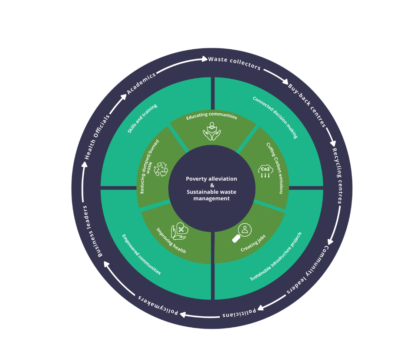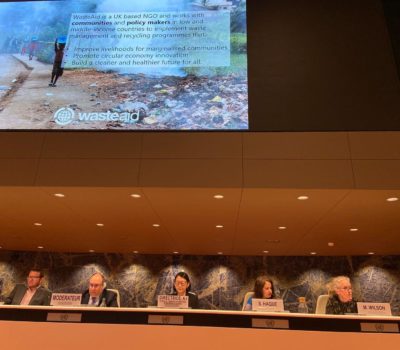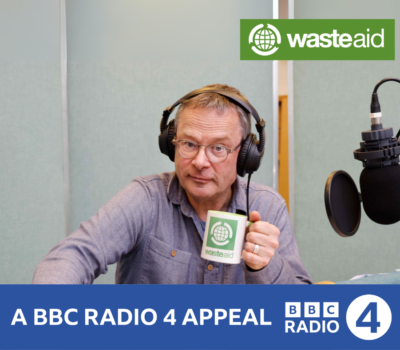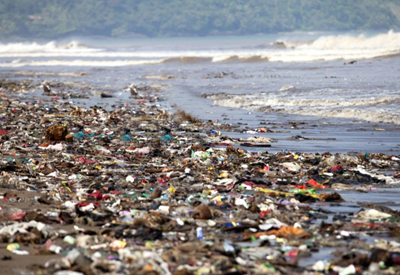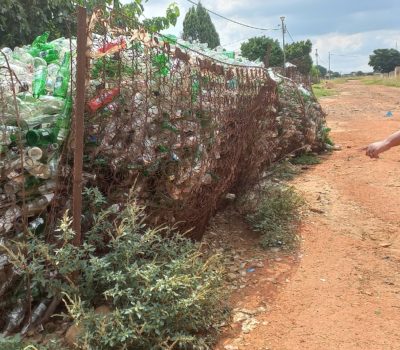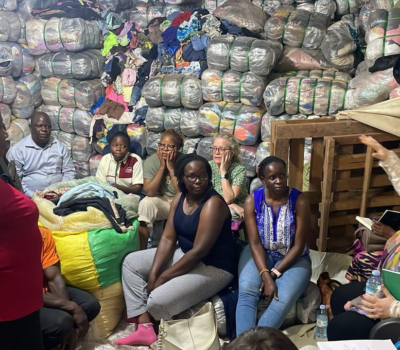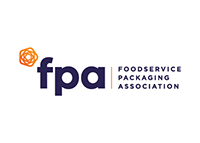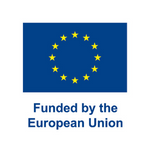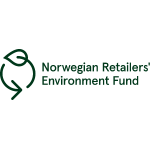Marine Plastic Pollution: From the Land to the Sea
Thought Pieces
Author: Admin
Published: 25 August 2018
The amount of waste we produce is expected to DOUBLE in the next 15-20 years. Where is it going to go?
A growing population, increasing urbanisation, and a shift to a consumer lifestyle are leading to the generation of ever great volumes of solid waste around the world. When our waste isn’t managed properly it can end up in drains and rivers, and eventually makes its way to the sea.
Quick facts:
- More than 90% of the plastic in the sea comes from land based sources.
- Every year, 4-12 million tonnes of mismanaged waste enters the oceans from within 50km of the coast. More than half of this is from five countries in east Asia.
- An additional 0.4-4 million tonnes waste reaches the oceans via rivers. More than 90% of this waste flows along 10 major rivers in Asia and Africa.
- Overall, mismanaged household and business waste in lower-income countries probably accounts for 50-70% by weight of plastics entering the oceans.

This is a major problem, but it is only part of the story.
With two billion people living without waste collection and three billion without controlled waste disposal, the poor management of solid waste is a global crisis.
Poor management of solid waste leads to a range of negative impacts on:
- The environment – polluting rivers and wells; causing local air pollution and climate change emissions; polluting the oceans with plastics and land, air and water with microplastics; harming wildlife; and blocking drains leading to flooding.
- Human health – burning waste leads to respiratory diseases; the pollution from waste causes childhood stunting; blocked drains exacerbate the spread of water-borne and infectious diseases, flooding and drowning.
- Local economies – healthcare costs a lot more when disease is commonplace; communities experience productivity losses and damage from flooding; tourists stay away; clean-up costs can be significant; and unmanaged waste worsens social inequality.
There is a flip-side…
Whilst badly managed waste represents a threat to human health, the environment and economic development, there are also many opportunities. Improved resource management can help people who are economically marginalised, and there is increasing interest from the global development community as to the opportunities that a more circular approach offers.
International donors are increasingly prioritising actions for the poorest and most marginalised, such as in the UK Department for International Development’s Leave No-One Behind agenda.
A pro-poor, inclusive approach to improve solid waste management would be a win-win:
Providing a vital service to some of the world’s poorest communities would make them a healthier place to live, grow and do business in, whilst creating green jobs.
Importantly, community-led waste management can also help limit climate change and stop plastic polluting our rivers and oceans.
How to improve the lives of the world’s poorest and halve the plastic entering the oceans
To address the global waste crisis, the international community needs to act.
WasteAid and CIWM are calling on the UK Government to:
Fund: Commit to increasing the proportion of aid spent on waste management to at least 3% from its current estimated level of 0.3%;
Champion: Promote the need for increases in aid to waste management within the Commonwealth and G7, for example as part of the blue economy priority; and
Lead: Spearhead negotiation of a binding international treaty to tackle marine plastic pollution, which should have at its core prevention through proper solid waste management, as well as efforts to clean up existing pollution.
Priorities to tackle marine plastic pollution at source:
- Prioritise technical assistance to improve governance and the enabling environment, establishing multi-stakeholder coordinating bodies and scaling up contextually relevant community-based recycling approaches.
- Where possible and especially in poorer countries, fund projects that work with local informal waste management approaches to develop sustainable solutions that enable local communities to create value and not rely on continued external support.
- Avoid inappropriate large-scale, high-cost, high-technology projects, which often threaten waste picker livelihoods, are not suited to waste streams with high organic content and are reliant on very high capacity clients to ensure environmental standards are met.
- Work with the resource management sector, universities and development groups to:
- a) Leverage greater investment from the broader international development community and ‘mainstream’ waste;
- b) Incubate and support novel approaches to delivery of waste services in low income countries;
- c) Convene opportunities for international partnership and knowledge exchange;
- d) Share technical guidance and best practice; and
- e) Avoid the known pitfalls to move confidently towards a more equitable and sustainable future.
Read the WasteAid & CIWM briefing paper in full
On World Water Day (22 March 2018) WasteAid and CIWM issued a call to action to the UK Government with a detailed briefing paper on the relationship between solid waste management and the growing tide of marine plastics pollution.
“From the Land to the Sea” catalogues the impact that poor or non-existent waste collection and management practices in developing countries have on the growing quantity of plastic waste that is entering the oceans every year.
Written by Zoë Lenkiewicz



